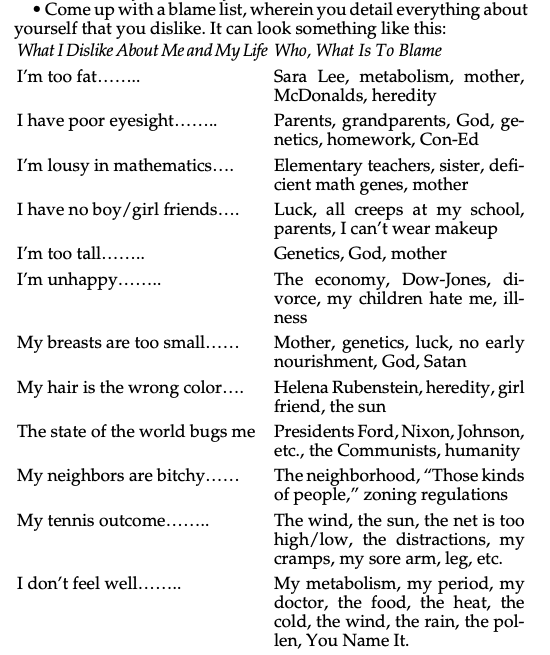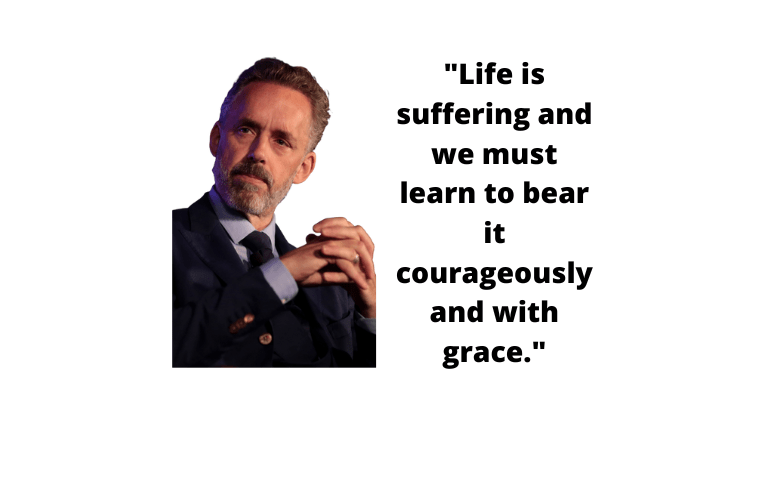Disclaimer: This post may contain affiliate links. For more information, please visit our Disclaimer Page.
Mastering Your Inner Self for a Happier Life
Introduction
Have you ever found yourself stuck in a mental rut, unable to escape the harmful patterns of thought that hold you back from achieving your goals and living your best life? Fear not, for the groundbreaking tome “Your Erroneous Zones” by the esteemed Dr. Wayne W. Dyer may be the key to unlocking your full potential and breaking free from those limiting beliefs.
In “Your Erroneous Zones,” Dr. Dyer challenges the conventional wisdom that constrains us, offering practical tools and techniques to transform our thinking and behaviors. With his trademark wit and wisdom, Dr. Dyer expertly guides readers toward recognizing and dismantling the barriers that prevent us from realizing our true potential.
So why wait? Let’s dive right in and discover the untapped potential of “Your Erroneous Zones” today!
Chapter 1: Taking Charge of Yourself
Do you want to live a life of greatness? Of course, you do! The secret lies in choosing personal fulfillment over madness. And guess what? You have the power to do so! Your thoughts belong to you and can be changed, shared, or kept private. Don’t let negative thoughts control your feelings. You can choose happiness and freedom by changing your thoughts and beliefs. It’s all within your control.
Happiness is your natural state of being. Don’t let society’s conditioning make you forget that. You deserve to live a happy life, and it all starts with becoming aware of the conditioning that has held you back for so long. The present moment is your only one, so seize it! Don’t let regrets about the past or worries about the future hold you back. Live in the present and live your best life.
Chapter 2: First Love
Do you feel like you’re not worthy of love and respect? That’s not true! You are worthy simply because you say so. You don’t need anyone else’s approval. Love is about allowing those you care for to be who they are without trying to change them. You are unique, and that’s what makes you special. Don’t let anyone tell you otherwise.
Everyone has the potential to learn and master new things. You need to give yourself enough time. And remember self-love! Accept yourself as worthy because you choose to do so. Independent thinking is a strength, not a weakness. Be bold and think for yourself and stand out from the crowd.
Chapter 3: You Don’t Need Their Approval
Do you constantly seek the approval of others? It’s time to stop. Your children don’t belong to you; they come through you but not from you. Jesus Christ preached self-reliance and was unafraid of disapproval. And you can do the same! True happiness comes from within, not from seeking the approval of others.
Breaking the habit of approval-seeking can be difficult, but it’s worth it. Take it one step at a time; you’ll soon feel more confident and independent. You don’t need anyone’s approval to live your best life.
Chapter 4: Breaking Free from the Past
Your past does not define you. You have the power to choose who you want to be today. Don’t let self-defeating thoughts hold you back. The past is like a bucket of ashes, and it’s time to let it go. You can change the narrative by using positive affirmations and rejecting negative self-labels. Don’t fall into the trap of thinking, “That’s me,” “I’ve always been that way,” “I can’t help it,” or “That’s my nature.” You have the power to create your destiny.
In conclusion, taking charge of yourself is about realizing your power and using it to live your best life. You have control over your thoughts, feelings, and actions. Choose happiness, self-love, and independence; you’ll break free from societal conditioning and self-doubt. Trust me, you’ve got this!
Chapter 5: The Useless Emotions – Guilt and Worry
Life is too brief to waste time on unhelpful feelings. There are two such emotions: guilt and worry. They don’t add anything useful to our lives. Guilt is a trained emotional reaction that makes us susceptible to exploitation. It is not a habit that comes naturally to people. On the other hand, worrying is an exercise in futility in anticipatory dread.
Everyone can go insane due to regretting the past and worrying about the future. Taking action is the best method to handle worry. Instead of wasting time thinking about potential outcomes, please take action to reduce risks and address issues as they arise. Don’t let your remorse about what has happened dominate you, either. Acknowledge your errors, get past them, and learn from them.
Chapter 6: Exploring the Unknown
Although uncertainty is a characteristic of everyone, it shouldn’t stop us from exploring the uncharted. Early education in our culture frequently promotes caution over curiosity and safety over adventure. But taking chances and going outside the norm leads to growth and advancement.
Failing is not necessarily awful. It’s just another person’s judgment of how a particular act should have been carried out. Failure should not be feared but rather welcomed as a chance to grow. Failure teaches us important truths, whereas success serves to confirm our superstitions. For both civilization and the individual, growth lies in the unknown. So go down a less-used path and see where it takes you.
Chapter 7: Breaking the Barrier of Convention
It’s easy to avoid taking ownership of our lives by blaming other factors for our issues. Instead, we must acknowledge that our happiness or misery results from our decisions and deeds. The act of blaming others is a manifestation of externally-oriented thinking, which will only prevent us from attaining our objectives.

The “shoulds” in our lives must be eliminated because they exacerbate tension and relationship problems. Although acknowledging that everyone is unique and has various viewpoints, we should focus on accepting responsibility for ourselves. We should love ourselves first and foremost rather than expecting others to love us in a certain way. By owning our lives, we may escape the justice trap and lead more fulfilling lives.
Chapter 8: The Justice Trap
Fairness is a hypothetical idea that we can use as a justification for not taking control of our lives. Another other-focused behavior that results from a lack of confidence is jealousy. Instead of comparing ourselves to others, we should concentrate on our own objectives. Instead of getting sidetracked by what others have or lack, we should concentrate on what we desire for ourselves.
“A stupid constancy is the hobgoblin of tiny minds,” Emerson once said. Instead of living by planning our actions, we should take them. Instead of allowing outside factors to dictate how we live, we should take charge of our lives. We may lead happier, more hopeful lives by avoiding the justice trap. Therefore let’s accept our individuality and concentrate on our own objectives without letting outside influences derail us.
Chapter 9: Putting an End to Procrastination Right Now
Time and enjoyment are both stolen by procrastination. It tricks us into thinking we are something we are not in reality. Yet, if we live in the now, we can end it. Focus on the here and now and utilize each five-minute interval to accomplish something satisfying rather than considering long-term objectives.
Get down and start working on something you’ve been putting off. After you get started, you’ll realize that much of your project-related anxiety was unwarranted. Procrastination merely causes needless stress and discontent. So begin acting today and observe the benefits that follow.
Chapter 10: Declare Your Independence
It’s crucial to keep your identity in any relationship. When both parties genuinely love and accept one another’s decisions, a marriage is successful. Only you have power over your emotions. Realizing your independence and accepting responsibility for your own feelings and actions are crucial.
Declaring your independence will allow you to keep your identity intact while having a happy and healthy relationship. Thus, resist letting anyone else dictate your thoughts or behavior. Take control of your life to achieve ultimate contentment and happiness.
Chapter 11: Farewell to Anger
Being angry is a negative emotion that only helps to depress us. But we can decide between being angry or laughing. The secret to keeping a cheerful view of life is to laugh often. Laughing is the sunshine of the soul. Healthy people can find delight in any circumstance because of their kind sense of humor.
We can welcome joy and laughter by waving goodbye to wrath. Even in the face of hardship, we should laugh and keep a positive attitude. We can locate the sunshine that enables us to develop and prosper through laughter.
Chapter 12: Portrait of a Person Who Has Eliminated All Erroneous Zones
A doer, not a critic, is someone who has removed all false zones. Instead of pointing fingers and whining, they take steps to make their aspirations come true. They take pleasure in every routine activity of life and acknowledge that there is joy in every encounter.
We can improve ourselves by eradicating all incorrect zones. We may act to accomplish our goals and experience joy every moment. So let’s start taking action and enjoying every second of our life.
Applying Your Erroneous Zones in Daily Life
In this book, Dr. Wayne Dyer introduces readers to the concept of erroneous zones – mental roadblocks that prevent us from living fulfilling lives. We can achieve greater happiness, success, and peace of mind by identifying and overcoming these zones.
But how can we apply these concepts to our daily lives?
Setting Goals and Planning for Personal Development
One of the key messages of “Your Erroneous Zones” is that we must take responsibility for our own happiness and success. This means setting goals and creating a plan for achieving them.
When setting goals, it’s important to be specific and realistic. Vague or unrealistic goals can lead to frustration and discouragement. Instead, break down your larger goals into smaller, achievable steps. For example, if your goal is to run a marathon, start by running a mile daily and gradually increasing your distance over time.
Planning is also crucial for personal development. Create a schedule or to-do list that outlines the actions you need to take to achieve your goals. This will help you stay focused and motivated and track your progress along the way.
Overcoming Common Obstacles and Setbacks
Even with the best planning and intentions, setbacks are inevitable. But by recognizing common obstacles and learning to overcome them, you can stay on track and continue to grow.
One common obstacle is fear of failure. This can lead to procrastination, self-doubt, and, ultimately, giving up on your goals. To overcome this fear, try reframing failure as a learning experience. Every mistake is an opportunity to learn and grow, bringing you closer to your ultimate success.
Another obstacle is the tendency to compare yourself to others. This can lead to feelings of inadequacy and self-doubt. Instead, focus on your own journey and celebrate your progress and achievements, no matter how small.
Seeking Support and Accountability
Personal growth can be challenging, and it’s important to have support and accountability along the way. Seek out friends, family, or a coach who can provide encouragement and accountability. Share your goals with them and ask for their support in achieving them.
Another way to stay accountable is to track your progress and celebrate your successes. This can be done through a journal, a progress tracker app, or by sharing your progress on social media. Seeing your progress and receiving positive feedback can be a powerful motivator.
In conclusion, applying “Your Erroneous Zones” concepts to your daily life can be a powerful tool for personal growth and development. By setting goals, planning, overcoming obstacles, and seeking support, you can overcome your erroneous zones and achieve greater happiness, success, and fulfillment. The journey may not always be easy, but the rewards are worth it.
F.A.Q. about “Your Erroneous Zones” by Dr. Wayne W. Dyer
What are erroneous zones meaning?
Erroneous zones are mental roadblocks that prevent us from living fulfilling lives. They include negative self-talk, fear of failure, and limiting beliefs.
How can I develop self-love and self-compassion?
To develop self-love and self-compassion, practice self-care, challenge negative self-talk, forgive yourself, celebrate your strengths, and surround yourself with positive influences.
What are some strategies for overcoming fear and resistance to change?
To overcome fear and resistance to change, identify the source of your fear, challenge your beliefs, take small steps towards your goals, and seek support from others.
How can I identify my erroneous zones?
Pay attention to your thoughts and feelings, and look for negative self-talk patterns or self-sabotage. You may also consider working with a coach or therapist to help you identify and overcome your erroneous zones.
How do I know if I’m progressing in overcoming my erroneous zones?
You know you’re progressing in overcoming your erroneous zones when you start to see positive changes in your thoughts and behaviors, feel more confident and capable, and can handle challenges and setbacks more effectively.
What are some other recommended self-help books for personal growth?
Some other recommended self-help books for personal growth include “The Power of Now” by Eckhart Tolle, “Daring Greatly” by Brené Brown, “The 7 Habits of Highly Effective People” by Stephen Covey, and “Atomic Habits” by James Clear.
Quotes from “Your Erroneous Zones”
“The greatest gift you can give yourself is the gift of self-acceptance.”
“The only limits you have are the limits you believe.”
“You cannot be lonely if you like the person you’re alone with.”
“The more you see yourself as what you’d like to become, and act as if what you want is already there, the more you’ll activate those dormant forces that will collaborate to transform your dream into your reality.”
“Love is the ability and willingness to allow those that you care for to be what they choose for themselves without any insistence that they satisfy you.”
“You are not a helpless victim of your own thoughts, but rather a master of your mind.”
“No one can make you feel inferior without your consent.”
“When you judge another, you do not define them, you define yourself.”
Wayne Dyer’s biography is a must-read if you’re interested in self-help and personal development.
Disclaimer: This blog post is a summary or resume of the book and is not intended to dispense the reading of the original book. This post aims to provide a general overview of the book’s main ideas and themes and encourage readers to read the complete book to gain a deeper understanding of the material. The information presented in this post is intended to be something other than a substitute for the original book and should be used as a supplement to, not a replacement for, the entire book. We strongly encourage readers to read the complete book to benefit from its ideas and teachings fully.







